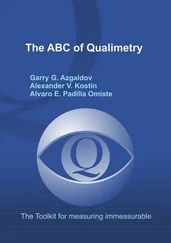“And what about sunken treasures? It will suffice to recall the tragic fate of the Lusitania sunk by a German submarine off the Irish coast in 1916. Apart from the valuables the fifteen hundred passengers might have had on themselves the Lu- sitania carried in her strongroom gold coin to the tune of 150 million dollars and 50 million dollars’ worth of bullion. (Exclamations in the Court). Besides, there were two cases of diamonds on board the ship bound for Amsterdam. The consignment included one of the world’s largest brilliants, the Caliph, worth many millions of dollars. Of course, even a man like Ichthyander could not descend to such depths; to do this a man would have to be created fthi’s drew a snort of indignation from the prosecutor), capable of withstanding high pressure like deepwater fish. And this is not impossible. Just a matter of time.”
“You seem to assume the role of an omnipotent god,” said the prosecutor.
Paying no attention to his words Salvator went on:
“If man could live underwater the ocean would be Ms for the asking. It would cease to claim its heavy toll of life and property and we would no longer have to mourn our lost at sea.”
Salvator’s audience, compelled by his eloquence, seemed to see a vision of an underwater world conquered by man. Even the presiding judge succumbed to the spell.
“Then why didn’t you publish the results of your experiments?” he asked.
“I was in no particular hurry to get into the dock,” Salvator said with a smile, “and then I was afraid that, our social system being what it is, my discoveries might bring more harm than good. As it was, a tussle started round Ichthyander. Who informed against me after all? Zurita, who wanted to take his revenge on me when Ichthyander had slipped through his hands. And from Zurita Ichthyander would have been taken by their Lordships the Admirals and trained to sink warships. No, I could not make Ichthyander-and other Ichthyanders-public property in a country where greed and struggle for survival turn the greatest discoveries into something evil, only adding to the amount of human suffering. I thought of-”
Salvator stopped short. When he started again it was in quite a different tone of voice. “I’m going to leave that unsaid, I think. Otherwise I might be again styled insane,” he said with a smile and looked at the experts. “And that’s an honour I’d like to renounce herewith, even were the word genius tagged onto it. I’m not a madman, nor am I a maniac. I’ve done what I set out to do, haven’t I? You’ve seen it all. If you find my actions criminal it’s up to you to try me and convict me. I beg for no leniency.”
Acting on the instruction of the Court the experts examined the state of Ichthyander’s mental ability. They found he had great difficulty answering the simplest questions. Even when asked about the year, month or day Ichthyander kept answering, “I don’t know.” Yet, the experts were hesitant to declare him mentally deficient, for they realized that the state of his mind was due to his exceptional background and that the scope of his knowledge was bound to be limited. “Not responsible for his actions” was what they finally agreed on. And that made him unamenable to the law. The case against him was dropped and a guardianship suggested. Promptly two persons came forward: Zurita and Baltasar.
Salvator had been right in saying that Zurita had informed against him to get his revenge. But that was only part of the story. Zurita wanted Ichthyander back in his hands and saw the guardianship as an easy short-cut to that end. Zurita had not stopped at the expense of bribing the officials in charge with a dozen of his finest pearls and was now awaiting results in smug confidence.
Baltasar had claimed natural guardianship rights. But that was throwing straws against the wind. In spite of Larra’s efforts the experts refused to consider his client’s paternity on the strength of one witness, a brother of Baltasar’s at that.
Larra was not aware of the backstage influences in the case. Baltasar as plaintiff, as father robbed of his son, had been useful at Salvator’s trial; Baltasar as Ichthyander’s guardian ran counter to the interests of the Law and the Church.
Cristo who was now living at his brother’s was greatly worried about Baltasar. The old Indian would sit motionless for hours at a stretch, forgetting about food and sleep, then suddenly start rushing about the shop in a frenzy of excitement, shouting, “My son! My son! “ and hurling abuse at everything Spanish.
One day after another of such fits Baltasar said to Cristo:
“I’m going to the prison, brother. I’ll give my best pearls to the jailors so they let me see my son. Ill speak to him. Hell know I’m his father. A son will know his father. My blood’s sure to speak up in him.”
Try as he would Cristo could not dissuade his brother. Baltasar was adamant.
In prison he entreated some guards, wept at the feet of others, giving pearls to all till he finally got inside Ichthyander’s cell.
The small cell scantily illumined through the slit of a barred window was stuffy and smelly; the jailors didn’t bother to change the water in the tank often enough, nor did they carry away the fish offal the strange prisoner left after his meals.
Baltasar approached the tank and looked at the dark mirror of the water’s surface.
“Ichthyander! “ he called softly, and again, “Ichthyanderi “ but apart from a slight ripple on the surface nothing happened.
Baltasar waited a little, then stretched out a shaky hand and dipped it into the tepid water. It struck a shoulder. Instantly Ichthyander’s head popped out of the tank, followed by his shoulders.
“Who are you? What do you want?”
Baltasar sank onto his knees and stretching out his arms began rapidly:
“Ichthyander, your father’s come to you. Your real father. Salvator isn’t. Salvator’s an evil man. He disfigured you, Ichthyander! Look at me closely. You know I’m your father, don’t you?”
Water trickled in slow drops out of Ichthyander’s thick hair onto his pale face and down off his chin. His gaze was fixed on the old Indian, wistful and quizzical.
“I don’t know you,” he said.
“Ichthyander,” cried Baltasar, “look again! “ and, suddenly, clutching Ichthyander’s head, he pressed it to himself and started kissing it frenziedly, sobbing aloud.
Trying to escape the unexpected caresses Ichthyander splashed about in the tank, sending little eddies spilling over the rim onto the floor. All of a sudden a strong hand took Baltasar by the scruff of his neck, lifted him up bodily and threw him aside. He struck his head against the wall and slumped down.
When he opened his eyes it was to see Zurita towering over him, his right hand balled into a fist, his left flourishing a sheet of paper in triumph.
“See this? It’s the guardianship order. You’ll have to hunt elsewhere for a rich son for yourself. As to the young man here I take him home with me tomorrow. Got that?”
From where he lay huddled up against the wall Baltasar growled menacingly. The next moment, with a savage yell, he was up and at his enemy. Snatching the order out of Zurita’s hand and stuffing it into the mouth, he went on hitting out at the Spaniard. Zurita hit back.
The jailor, who witnessed the fight from the doorway, felt that the moment demanded the strictest neutrality; they both had been liberal in greasing his palm and he wanted to be loyal to both. So it wasn’t until Zurita started throttling Baltasar in dead earnest that the jailor stirred to action.
“There, there, don’t strangle him.”
However, deaf with rage, Zurita was pressing on his advantage and there’s no saying how it would have ended had a familiar voice not called out at that point.
Читать дальше
Конец ознакомительного отрывка
Купить книгу










